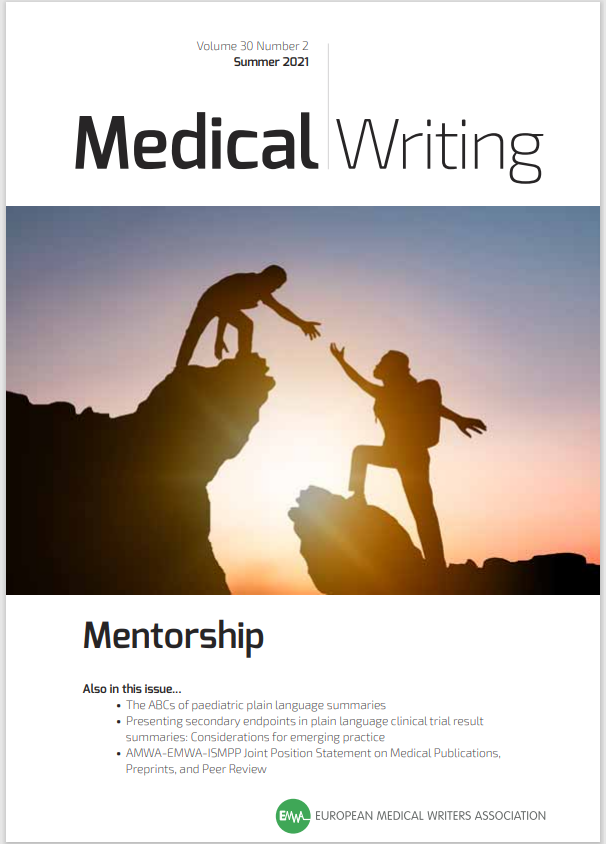
Volume 30, Issue 2 - Mentorship
Position Statement - AMWA-EMWA-ISMP Joint Position Statement on Medical Publications, Preprints, and Peer Review
Abstract
In medical publications, just as in research and development, quality depends on the expertise and integrity of researchers/authors as well as qualified peer reviewers and journal editors. However, the laborious and time-consuming process of the traditional peer review1 can be compromised by the pressure to publish quickly – particularly during a health crisis, when timely distribution of credible medical information can make a substantial difference.2 Recent examples of negative consequences are two articles on COVID19 that were hastily published in high-profile medical journals and subsequently retracted.3,4
Traditional peer review, although not perfect, remains the most frequently used process for vetting scientific publications. However, it has become more common for manuscripts to be released without prior review, which raises new concerns
 Download the full article
Download the full article
Search
Articles
Links
Editoral Board
Editor-in-Chief
Co-Editors
Senior Editor
Victoria White
Managing Editor
Alicia Brooks Waltman
Associate Editors
Section Editors
AI/Automation
Biotechnology
Digital Communication
EMWA News
Freelancing
Gained in Translation
Getting Your Foot in the Door
Good Writing Practice
Pablo Izquierdo / Alison McIntosh
In the Bookstores
Publications
Medical Communications/Writing for Patients
Medical Devices
My First Medical Writing
News from the EMA
Pharmacovigilance
Regulatory Matters
Regulatory Public Disclosure
Louisa Ludwig-Begall / Sarah Kabani
The Crofter: Sustainable Communications
Veterinary Writing
Editors Emeritus
Layout Designer
Chris Monk
 Visit the EMWA website
Visit the EMWA website